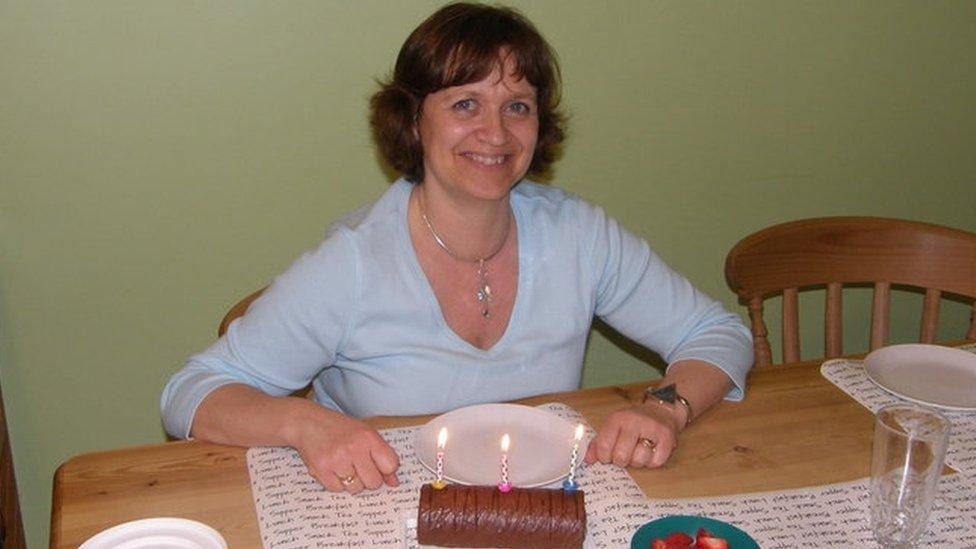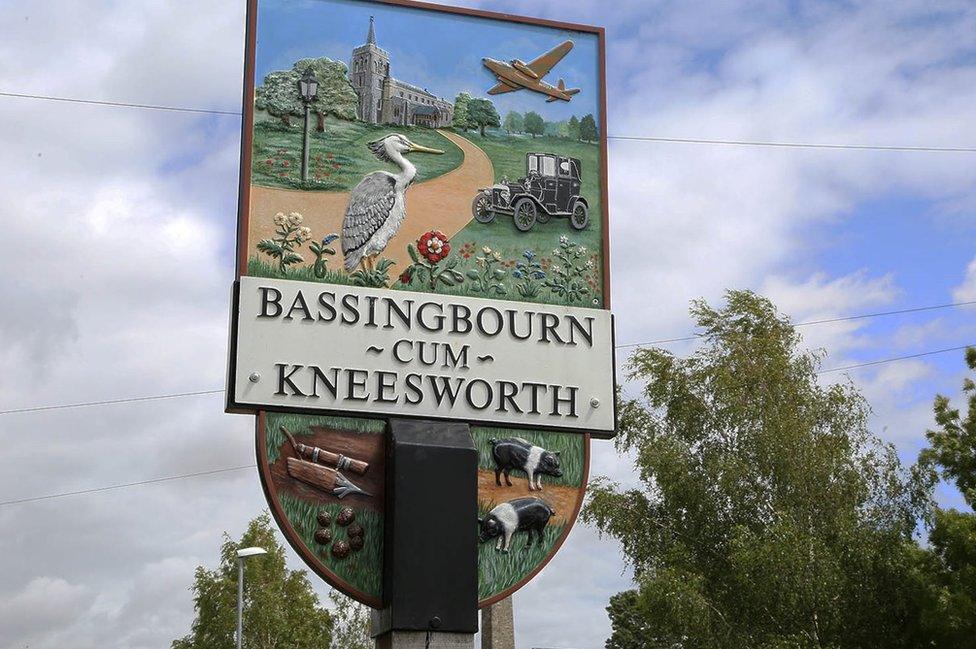Ian Stewart 'didn't seem distressed' over wife Diane Stewart's death
- Published

Diane Stewart died at her home in the village of Bassingbourn, Cambridgeshire, in 2010
A man already convicted of murdering a children's author "didn't seem particularly distressed" when his wife died six years earlier, a court heard.
Ian Stewart, 61, is on trial where he denies murdering Diane Stewart, 47, at their home in Cambridgeshire in 2010.
Paramedic Spencer North, who attended the scene, said Mr Stewart appeared "initially distracted, idly pacing".
Mr Stewart was convicted of murdering his new partner, writer Helen Bailey, in Hertfordshire in 2016.
Stewart denies murdering his wife in Bassingbourn on 25 June, six years before he killed Ms Bailey at the Royston home they shared.
Mrs Stewart's death was re-investigated after Stewart was convicted of Ms Bailey's murder in 2017.
During the opening of the current trial, Huntingdon Crown Court heard tests on Mrs Stewart's brain tissue, donated for medical research, showed that her "breathing had been restricted".

Diane Stewart died at the family home in Bassingbourn, Cambridgeshire
The court heard that when Mr North arrived at the scene, just after 11:40 BST, he was let through the gate by Mr Stewart and found Mrs Stewart in cardiac arrest in the rear garden. She was pronounced dead just after midday.
Asked by prosecutor, Stuart Trimmer, QC, how Stewart appeared "emotionally", Mr North replied that he "didn't seem particularly distressed or anxious at all".
Mr North said the defendant told him his wife suffered from epilepsy and that he had found her unresponsive when he arrived home.
The paramedic said there "didn't seem to be any effective CPR but we were told when he came out of the gate that he was just doing CPR".
"Generally effective CPR causes trauma," Mr North said.
"You crush the ribs, they pop, they snap, the airway is normally open.
"Not everyone knows how to do it but that's what you normally see if effective CPR is commenced."
He said he saw none of this.
Mr North also said he saw "blood-stained saliva" on Mrs Stewart's mouth but if there had been "effective mouth-to-mouth" he would have expected that to "have been everywhere".
He added there were "no obvious injuries" to the victim.
The paramedic said that in his experience, while "everyone's emotional responses are different" when you attend a fatal incident, family members "typically show a heightened emotional state, screaming, crying, upset".
"In this particular case [Mr Stewart] appeared dissociative and was simply answering questions calmly," he said.
PC Matt Gardner, who also attended, said he confirmed Mr Stewart was the last person to see his wife alive and completed a coroner's report form as he did not assess the death to be suspicious.
"He answered my questions clearly, I wouldn't say [he was] distressed, distraught, but people act very differently under such circumstances," he said.
The trial continues.

Find BBC News: East of England on Facebook, external, Instagram, external and Twitter, external. If you have a story suggestion email eastofenglandnews@bbc.co.uk, external
Related topics
- Published20 January 2022

- Published18 January 2022
